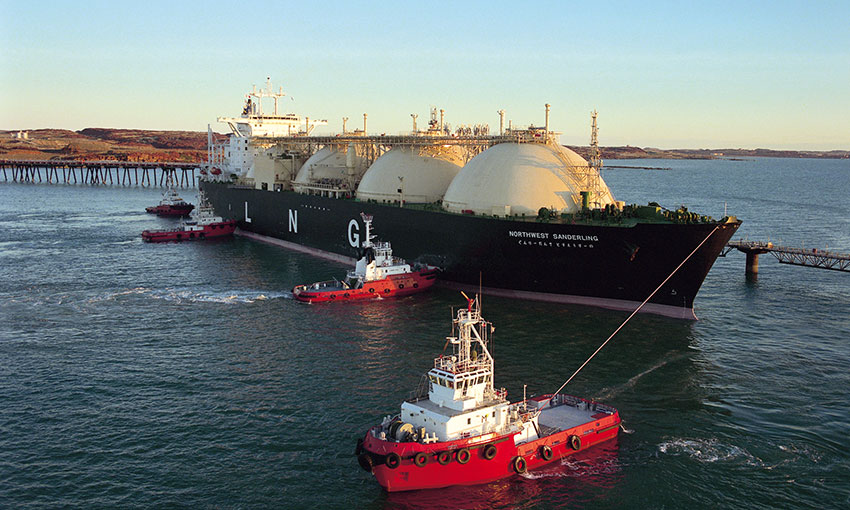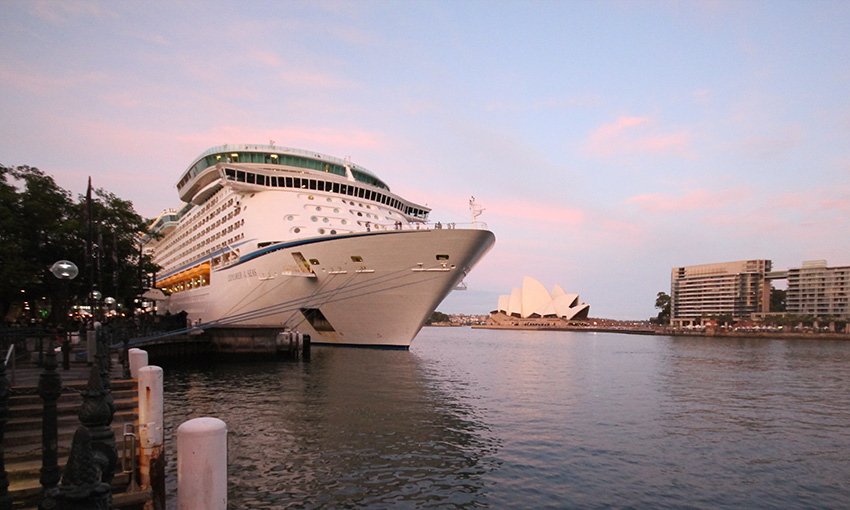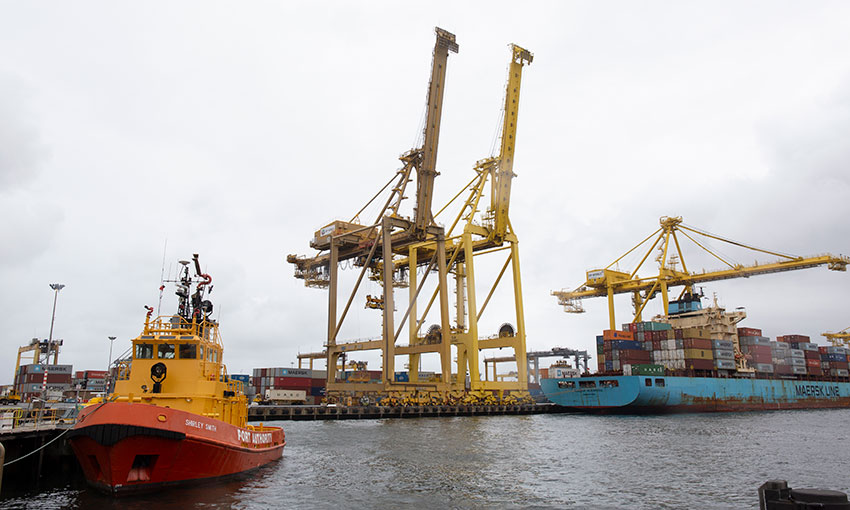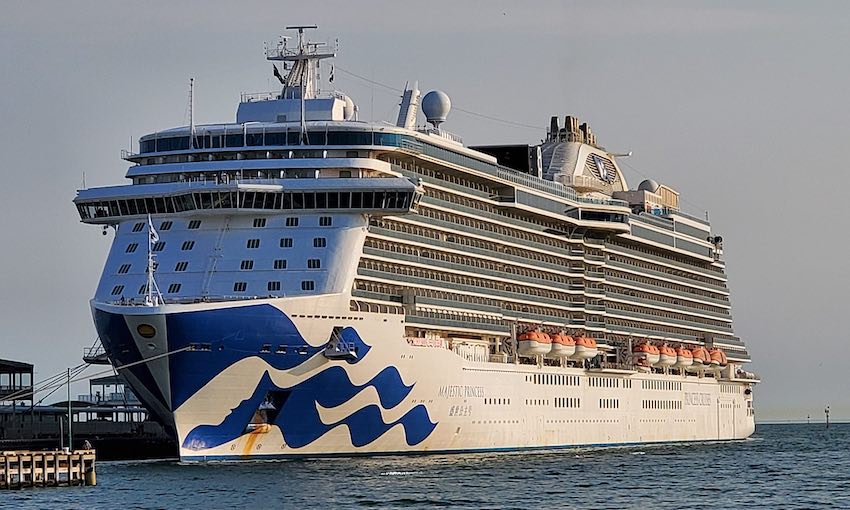CONCERN about maritime workers being able to enter Western Australia for work from eastern states is growing. The state government’s COVID-19 measures block many maritime workers from entering the state for work.
In August, the federal government a revised National Freight Movement Code and Protocol was announced. It allows road and rail workers and support personnel some freedom to travel interstate, but it does not cover maritime crews.
Withdrawal of a ship
According to the Maritime Union of Australia, Trident LNG, which provides the Australian crew for four LNG vessels, made two applications a fortnight ago seeking exemptions for crew to transit through quarantine and then move to Karratha under the COVID controls that have been established with the WA Police. Both applications were rejected.
The net effect is that North-West Shelf Shipping Service Company (NWSSSC), which operates the four Australian LNG ships, has advised they intend to suspend operation on the Australian flagged Northwest Sanderling as consequence of the hard border for domestic seafarers seeking entry to WA.
The vessel is to load out at the Woodside Karratha Gas Plant today (29 October) and discharge in Japan on 12 November. It is then expected to proceed to Singapore where it will be laid up for at least four months, if not indefinitely.
MUA Sydney branch deputy secretary Paul Garrett said, “NWSSSC have advised that they are experiencing issues obtaining a ship under charter to replace the Northwest Sanderling on the run. They have further advised that the charter rates have been ‘astronomical’.”
“If the Northwest Sanderling is taken off her international run as a consequence of internal border restrictions, Australian seafaring jobs will effectively be exported when these crew are replaced by international seafarers in Western Australia,” Mr Tracey said.
“It is absurd that Australian seafarers can’t get into WA to work these ships but a crew from overseas could fly in and walk up a ship’s gangway,” he said.
MUA national secretary Paddy Crumlin said the union is seeking immediate intervention by the WA government to facilitate the safe and effective movement of Australian domestic seafarers across the WA border.
“There is a weight of best practice seafarer movement methodology available from other states in Australia and a pathway for safe seafarer travel into WA exists,” Mr Crumlin said.
“The risk to the community can be managed while maintaining Australia’s supply chain security and the economic benefits Western Australians rely on. We would welcome a considered and immediate solution that effectively addresses this desperate situation, and we remain absolutely committed to working with the WA government, health experts and industry to establish consistent frameworks for the safe movement of Australian seafarers.”
Withdrawal of vessel “dreadful”
The Nautilus Federation Australia – a partnership between the Australian Institute of Marine and Power Engineers and the Australian Maritime Officers’ Union – is also concerned that maritime operations in WA may face interruption due to the inability of personnel from New South Wales and Victoria to travel to the state.
In a letter the NFA wrote to WA Premier Mark McGowan on 19 October, the organisation said Trident LNG had said it is considering temporarily withdrawing one of its ships because of a lack of personnel, particularly marine engineers with steam qualifications.
“There are several factors contributing to the shortage of personnel however the effective ban on personnel who reside in NSW and Victoria travelling to WA is a significant part of the problem,” the letter states.
“There are marine engineers employed by Trident LNG who could return to work on the ships who are at home in NSW and Victoria and unable to travel to WA because of the hard border closure. Without sufficient marine engineers, the company cannot keep all four ships fully crewed and the company is exploring the temporary withdrawal of one ship from operations.”
The letter continues, “The prospect that one of the four Australian flagged LNG tankers could be withdrawn from service in the next month or two is dreadful particularly after so much effort and cooperation has been made over the last 18 months to keep the ships moving throughout the pandemic.”
Disruptive to employment
AIMPE president Martin Byrne told DCN the withdrawal of one of the Trident LNG ships would be dreadful because it is the flagship operation that pioneered the establishment of LNG exports from Australia in 1989 and remains the only LNG export operation with Australian-flagged ships and Australian crews.
“For Australian seafarers the withdrawal of one of these ships – even if only temporarily – is disruptive to their employment,” he said.
“Maritime crew are treated quite differently and are only able to enter WA by exemption, and few exemptions have been granted since NSW, ACT and VIC were categorised as ‘extreme risk’. This is impacting on the availability of maritime personnel to WA based employers.”
On the verge of shutdowns
Meanwhile, the MUA is also urging the WA government to intervene, saying Australia’s maritime and oil and gas industries will be on the verge of shutdowns if WA’s hard border with the eastern states remains in place.
The union said the state’s border is blocking Australian workers with safety-critical skills from getting back to WA.
Mr Crumlin said if these workers leave WA and return to their home states, they will be unable to get back, laving the maritime and oil and gas sectors at risk of a critical labour shortage.
“This could have a devastating environmental, safety and economic impact within Western Australia and is at odds with Australia’s broader economic and strategic interests; productive offshore oil and gas facilities and onshore operations are at risk of reduced production or shutdown,” Mr Crumlin said.
International crew to WA
The MUA said under current entry arrangements, international seafarers can enter WA to join a vessel, but Australian domestic seafarers are refused entry at the state border.
“The industry is facing the very real possibility of serious consequences as a result of preventable and foreseeable skills shortages in critical areas,” Mr Crumlin said.
“We have been working with industry from the onset of COVID-19, together, seeking to deepen the understanding of governments both domestically and internationally on the essential role that seafarers play in global economic and supply chain security.”
The union said many seafarers from the eastern states of Australia have been forced to relocate to WA as the industry grapples with movement restrictions.
MUA WA branch secretary Will Tracey said, “These workers plan to return home for Christmas, meaning they will be unable to return to WA and provide their vital skills here given the current WA border closures”.
Minimum crewing standards
The MUA pointed out that if workers from NSW, VIC and ACT return home and then are forbidden from returning to WA for their next stint on board, vessels operating in WA will not meet the legislated minimum crewing standards.
“Some of the biggest operators in the oil and gas sector have made their concerns very clear. We know that like us, industry bodies such as CME, AMMA and MIAL have pleaded with the WA government to have seafarers added to the Western Australian government’s essential workers list,” Mr Tracey said.
“Without essential worker status, the industry will be under extreme pressure, impacting the Western Australian economy and we could see hundreds, possibly thousands, of job losses through the state as the effects of this ripple through the economy.”





